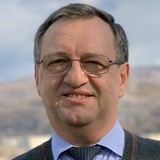Since 2017, persecution of Jehovah's Witnesses in Russia has not subsided
In recent years, hundreds of people have found themselves behind bars or awaiting trial simply because of their faith. The situation is steadily getting worse.


417
Criminal cases
461
Have been imprisoned
187
Sent to penal colonies
587
On the list of extremists
On July 17, 2017, the decision of the Supreme Court of the Russian Federation came into force, later recognized by the ECHR as illegal. The liquidation of legal entities on false charges of extremism led to the fact that thousands of ordinary believers - peaceful, law-abiding citizens - went through searches, arrests and trials, hundreds ended up behind bars.
July 17
2017
2017
March 7
2025
2025
850
persons involved in criminal cases since 2017
Why are Russian Jehovah's Witnesses persecuted?
There are no real victims or damage caused in any criminal case. All believers who receive prison sentences are peaceful, law-abiding citizens. Criminal cases are replete with vague formulations such as “an attack on the foundations of the constitutional order.” The believers themselves admit that they do not understand why they are being judged.
How were believers in Russia turned into "extremists"?
7:48
Russia's Presidential Council for Civil Society and Human Rights:
June 20, 2018
In all cases, the accusations brought against believers are based on the assertion that a group of believers held a worship service. The accusations of citizens that they read the Bible together and pray to God are interpreted as “continuation of the activities of an extremist organization.” The Council considers that such an interpretation is not consistent with the legal position of the Supreme Court of the Russian Federation. There is a contradiction between the declared position of the Government of the Russian Federation and law enforcement practice. This cannot but cause concern, since criminal prosecutions and arrests have become systemic. The situation is associated with the Soviet period, when “Jehovah’s Witnesses” were subjected to unreasonable repression on the basis of religion, as a result of which the Law of the Russian Federation of October 18, 1991, No. 1761-1, “On the rehabilitation of victims of political repression,” was extended to them.”
Go to sourceMedia About Persecution of Jehovah's Witnesses
Russian and international press closely follow the situation around Jehovah’s Witnesses since 2017. Here are some highlights of the media coverage:

'Kommersant'
“We are People Like You, But Now We are Called Criminals and Extremists”
The story of a prosecution office employee who became a Jehovah's Witness
In the Russian regions, the number of criminal cases against followers of Jehovah's Witnesses is growing (banned in Russia. - "Kommersant"). They are suspected of creating an extremist organization. But against this background, the situation in Surgut stands out - there were searches of dozens of believers, many of whom complained that they were tortured with electric shocks during interrogations. One of the extremist suspects was lawyer Timofey Zhukov, a former assistant prosecutor in Surgut who gave up his career in law enforcement to become one of Jehovah's Witnesses. In an interview with Kommersant's special correspondent Aleksandr Chernykh, Mr. Zhukov told how his former colleagues relate to Jehovah's Witnesses, analyzed in detail the legal errors of the accusation of extremism, and at the same time answered questions about his faith. He also confessed: “Until the last moment, I could not believe that law enforcement officers could torture believers.”
Go to the article
read more
'Vedomosti'
Punishment not Only for Faith
Historian Pavel Polyan on how Jehovah's Witnesses were persecuted in the Soviet Union
The ban on the activities of Jehovah's Witnesses by the Supreme Court as an extremist organization is quite similar in content to how this and other religious communities were persecuted in the USSR. They were repressed for anti-Soviet activities. In the late 1940s - early 1950s the policy of the Soviet authorities in relation to the religious "underground" made a remarkable internal turn: the thesis was re-formulated about the expediency of deporting representatives of certain "incorrigible" religious groups (the last such operation - the deportation of "True Orthodox Christians" - took place in 1944). The office of the Commissioner for Religions and Cults under the Council of Ministers of the USSR (UDRK) had its own republican and regional offices, which oversaw all confessions throughout the country, except for the Orthodox, which was supervised by a separate and special office. The UDRK had a lot of work in the western, annexed areas. It was from there that “sectarian elements” were mainly expelled, in whose doctrine and propaganda the authorities saw anti-Sovietism.
Go to the article
read more
'Novaya gazeta'
Element of Faith
Human rights activist Lev Ponomarev on how law enforcement agencies “find” extremism in simply reading the Bible
I have always felt outside of religion. And although I did not share and do not share any religious beliefs, I was strongly impressed by people who are sincerely devoted to their faith. Perhaps they are carriers of some truth that is inaccessible to me. I understood that they should be treated with care. And, in any case, one should not allow a rude intrusion into their world. In the early 1990s, it seemed to us, deputies of the Supreme Soviet of the RSFSR, extremely important to adopt a law on freedom of religion. And it was one of the first to be accepted. Where there is respect for a person, there is also respect for his faith. But Russia, as you know, has a special path and, as it turned out recently, is a separate civilization. In our country, believers can be equated with extremists.
Go to the article
read more
'Nezavisimaya'
Why Jehovah's Witnesses Get Tougher Sentences
Human rights activists question the validity of court cases against followers of the faith
Another wave of law enforcement fighting against Jehovah's Witnesses, banned in Russia and recognized as an extremist organization, has swept through different regions. On February 10, the Abinsk District Court of the Krasnodar Territory sentenced 63-year-old Aleksandr Ivshin to 7.5 years in prison. He received such a long term for discussing the Bible and the teachings of Jehovah's Witnesses with friends via video call, and also performing religious chants. On the same days, believers in Moscow, Birobidzhan, and Kyzyl were detained and accused of participating in extremist activities. In total, since 2017, when the organization was recognized as extremist and banned on the territory of the Russian Federation, more than 220 people have been subjected to persecution, including criminal prosecution, according to human rights activists.
Go to the article
read moreFrom the courtroom
What do believers say before they go to jail for their faith? Quotes from the last words of the defendants in courts:
What Russian Human Rights Experts Say
Russian human rights activists are deeply concerned about the mass repressions that resemble Soviet times.
Joint statement of more than 60 Russian public figures
June 19, 2018
What happens to them, in fact, happens to us. This is a test of the immune forces of society. The persecution of Jehovah's Witnesses highlights the failure of anti-extremist legislation in general. If the society fails to protect Jehovah's Witnesses, if they are not restored in their rights, this will mean that everyone can be declared an extremist. […] An experience of a person who found answers with Jehovah's Witnesses to his questions that the Catholic priest could not resolve, was declared by the courts as propaganda of religious superiority—that is all extremism. Such “extremism,” and much more brutal, can be found in theological, liturgical, and other texts of most faiths. If you take on religious scriptures with the same measure, you will have to ban all religions.
What happens to them, in fact, happens to us. This is a test of the immune forces of society. The persecution of Jehovah's Witnesses highlights the failure of anti-extremist legislation in general. If the society fails to protect Jehovah's Witnesses, if they are not restored in their rights, this will mean that everyone can be declared an extremist. […] An experience of a person who found answers with Jehovah's Witnesses to his questions that the Catholic priest could not resolve, was declared by the courts as propaganda of religious superiority—that is all extremism. Such “extremism,” and much more brutal, can be found in theological, liturgical, and other texts of most faiths. If you take on religious scriptures with the same measure, you will have to ban all religions.
Go to the article
read moreJoint statement of 36 human rights and public organizations of Russia
January 24, 2019
We urge the Russian authorities to stop deprivations, interrogations and criminal investigations for peaceful religious activity of Jehovah’s Witnesses. We ask the international organizations and governments of the democratic states to call on the Russian government to end the persecution of Jehovah’s Witnesses. […] After Russia outlawed the Jehovah’s Witnesses, the number of acts of intolerance, violence and discrimination based on religion or belief are increasingly perpetrated towards the members of the community. The private property is armed searched, the meetings for worship are regularly interrupted by the OMON forces and FSB agents. The state carries censorship of the religious literature.
Go to the article
read moreStatistics of Persecution
Since 2017, the number of Jehovah's Witnesses sentenced to prison terms has increased significantly.
What the International Community Says
International bodies and governments urge Russia to stop the repressions of Jehovah’s Witnesses.
United Nations
February 7, 2019
Harsh sentence imposed on Christensen creates a dangerous precedent, and effectively criminalises the right to freedom of religion or belief, for Jehovah’s Witnesses in Russia. […] We urge the Government of Russia to revise the Federal Law on Combating Extremist Activity with a view to clarifying the vague and open-ended definition of ‘extremist activity’, and ensuring that the definition requires an element of violence or hatred. We also call on the authorities to drop charges against and to release all those detained for exercising their rights to freedom of religion or belief, the freedom of opinion and expression, and the right to freedom of peaceful assembly and association.
Go to sourceOrganization for Security and Cooperation in Europe
July 23, 2020
We have heard the Russian delegation claim more than once at the Permanent Council that Jehovah’s Witnesses are, and will continue to be, able to practice their religion freely, and that freedom of religion or belief is guaranteed in the Russian Federation. However, we continue to see numerous reports about home raids, detentions, and criminal investigations concerning Jehovah’s Witnesses.
Go to sourceEuropean Court of Human Rights
June 7, 2022
Although the Jehovah's Witnesses' publications have been widely available in many countries for decades, including in Russia, the Government has not submitted any evidence that they have caused interreligious tensions or led to any harmful consequences or violence, in Russia or elsewhere.
Go to sourceEuropean Union
March 12, 2020
All people, including members of the Jehovah’s Witnesses, must be able to peacefully enjoy their human rights, including the right to freedom of religion or belief, freedom of association and peaceful assembly and freedom of expression, without discrimination.
Go to sourceResources
Find more information about Jehovah’s Witnesses in Russia updated on a daily basis:








 Video
Video Documents
Documents Biographies
Biographies